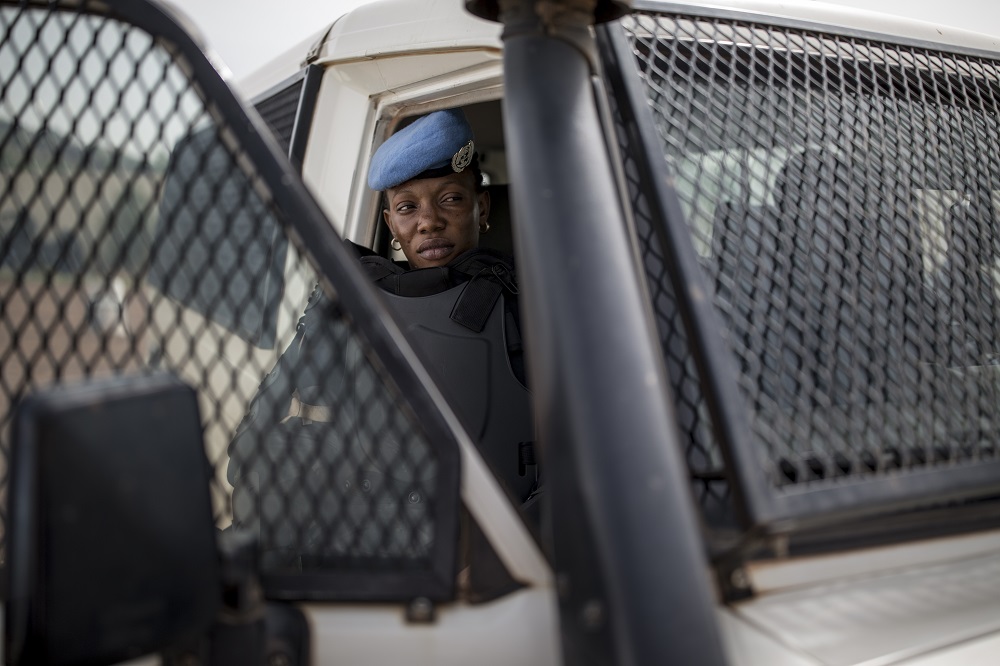The month in women, peace and security: November 2019

Mapping WPS in the UN Security Council
The Working Group on Women, Peace and Security has published its annual policy brief evaluating the UN Security Council’s implementation of the WPS policy framework. The group found that the council’s approach to WPS in 2018 remained ‘superficial, ad-hoc and inconsistent’ and suffered from a lack of accountability for the failure to fully implement all of the provisions of the WPS agenda. The brief highlights areas of missed opportunity for the council and provides recommendations for improvement.
Next generation WPS: case studies in women’s Inclusion
The United Nations Development Programme has released its inaugural publication of Next generation women, peace and security: case studies on women’s inclusion’. The report details the ways in which women and gender activists from N-Peace, a UNDP flagship initiative, have been using social innovation to address ongoing and emerging conflicts. The publication focuses on the work done by recipients of the initiative’s civil society grants to strengthen gender equality on all levels in ‘some of the most remote and isolated peacebuilding contexts’.
Ten steps for turning WPS commitments into actions
Gender Action for Peace and Security, which is funded by the UK government, and its partners have published a report on their consultations to mark the 20th anniversary of UN Security Council resolution 1325 in 2020. A total of 245 organisations and individuals from 11 countries participated in the project. The main finding was that commitments on WPS are ‘vast and comprehensive’ but haven’t led to the inclusion of gender perspectives and women’s rights in policy and program development. The report provides a set of recommendations, dubbed the ‘10 steps’, that institutions and organisations can implement to help create a more peaceful world in which all rights are upheld.
Action plan database released
The London School of Economics Centre for Women, Peace and Security, in partnership with the University of Sydney, has published a new interactive database that catalogues all publicly available WPS national action plans. The database provides English translations for all non-English plans and allows users to search by region, country, year and topic.
Parliamentary WPS handbook
As part of the Global Project on Parliaments and Civil Society as Partners Supporting the Women, Peace and Security Agenda, the UNDP has partnered with the Norwegian government to produce a handbook that provides guidance to parliamentarians on what they can do to support the WPS agenda. The handbook brings together the lessons learned from the UNDP’s global project and provides insights into international best practices and the ways in which parliaments can support women’s participation in peacebuilding and security.
Women in cybersecurity
Sonya Moisset, lead security engineer at Photobox, started a ‘Follow Friday’ thread on Twitter to give more visibility to women in cybersecurity. Moisset has put all of the names she has collected in an article to make it widely accessible. The list will continue to grow as more women in the field put their names forward.
WPS and the A4P agenda
The Challenges Forum’s most recent policy brief, Women, gender and the A4P agenda: an opportunity for action?, analyses the progress made on the commitments under the UN’s action for peacekeeping (A4P) agenda and the challenges that need to be addressed to ensure that it’s positioned to advance WPS and improve the effectiveness of peacekeeping and peace operations. The paper’s author, ASPI’s Lisa Sharland, explains that the A4P agenda needs to keep WPS at the forefront if peacekeeping reforms are to be effective.
Advancing WPS through women’s health
In a new paper, physician and US Air Force lieutenant colonel Chelsea B. Payne discusses the WPS agenda in the context of global health and humanitarian crises. She argues that a woman’s health is a ‘core component of her ability to participate in community development, assume leadership roles, and make meaningful contributions to security cooperation’. The article provides a number of practical recommendations to expand women’s participation in the WPS agenda by promoting women’s health and addressing global health issues, such as neglected tropical diseases.
Women in policing in the UN
The International Peace Institute hosted a discussion on the experiences of women in UN Police (UNPOL) and their contribution to the WPS agenda. Gender parity is a top priority for UNPOL. It seeks to build a diverse police force because of the positive effects women have in conflict-stricken communities. Of the 9,353 personnel serving in UNPOL, 1,320 are women police officers who work across 23 UN peace operations. The panel noted that while increasing women’s participation is important, it’s crucial to place them in key positions so they can realise their true value in conflict areas. Multiple UN initiatives are helping women achieve leadership positions as well as bolstering participation rates.
Women in Mozambique call for broader view of security
A report by Associação Sócio-Cultural Horizonte Azul, a Mozambican feminist civil society organisation, and Columbia University investigates the widespread insecurity faced by Mozambican women and girls despite decades of relative peace. The report found that peace ‘should include everyday human security and wellbeing, beyond issues of war and armed conflict’. It argues that viewing structural inequality and safety through a gendered lens will create a more durable peace for all. Improving public infrastructure and dismantling gender norms were some practical suggestions for achieving a sustainable peace.
